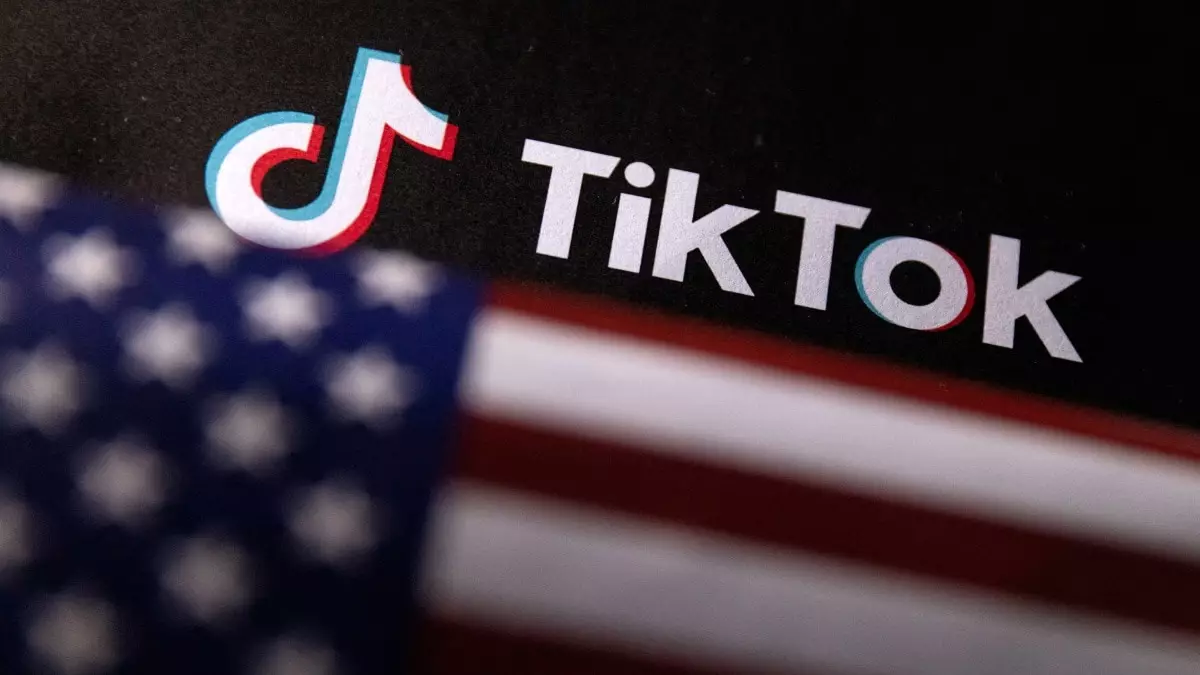In a striking development, President-elect Donald Trump has stepped into the ongoing legal conflict surrounding TikTok, urging the U.S. Supreme Court to delay the enforcement of legislation that could either ban the popular social media application or compel its sale. The request highlights the complexity of the situation, which pits modern technology against national security concerns and the intertwined interests of politics and commerce. As the Supreme Court prepares to hear arguments on January 10, the implications of this case extend far beyond TikTok’s operation in the United States; they reverberate through ongoing debates about digital privacy, international relations, and freedom of expression.
The crux of the issue lies in the legislation passed by Congress, which mandates that TikTok’s Chinese parent company, ByteDance, must divest its ownership by January 19 or face an outright ban. With TikTok boasting a user base exceeding 170 million Americans, the stakes could not be higher. The planned ban raises critical questions about governmental authority over technology companies and the extent to which those in power can dictate market behavior based on geopolitical anxieties.
Interestingly, Trump’s current stance marks a significant shift from his administration’s previous efforts in 2020, when he sought to block TikTok outright due to concerns about Chinese influence. Now, he advocates for a dialogue that could potentially alter the app’s fate in the U.S. Trump’s assertion that he has fostered a “warm spot” for TikTok reflects both a political strategy and an awareness of the app’s vast reach among young voters. During his recent presidential campaign, he acknowledged that his content received billions of views on the platform, an indicator of its potential as a powerful tool for engagement.
The president-elect’s lawyer, D. John Sauer, emphasized that Trump does not take a definitive stance on the merits of the case but rather seeks a postponement to allow for a more measured approach. This request to stay the legislation’s implementation until January 19, 2025, serves a dual purpose: it provides breathing room for Trump’s incoming administration and underscores the administration’s capacity to negotiate a resolution that may benefit all parties involved.
The discourse surrounding this case also brings to light the intersection of national security and free speech. Free expression advocates argue that the proposed legislation resembles censorship tactics employed by authoritarian regimes, prompting concerns over potential overreach by the U.S. government. Such assertions further complicate an already tangled narrative surrounding TikTok’s fate, positioning this legal challenge as a potential litmus test for the U.S. commitment to free speech in an increasingly digital world.
On the other hand, the U.S. Justice Department remains firm in its position that the Chinese ownership of TikTok poses an ongoing national security risk. This perspective is echoed by a significant majority of lawmakers who back the legislation, framing their support in terms of protecting American interests from foreign influence. The concerns regarding data privacy and potential espionage are not without merit, as countless instances of data breaches and manipulations have dominated the news cycle in recent years.
As the clock ticks down to the potential consequences for TikTok, the mobilization of bipartisan support intensifies. For instance, Montana Attorney General Austin Knudsen spearheaded a coalition of 22 attorneys general in an amicus brief to the Supreme Court, urging it to uphold the divest-or-ban framework. The resounding voice of state attorneys further illustrates how TikTok has become a lightning rod for broader discussions about technology, governance, and sovereignty.
As the legal proceedings unfold, the outcome of this case could set a precedent that shapes how the U.S. handles foreign-owned tech entities in the future. The intricate dance of politics, security, and public opinion will undoubtedly continue as stakeholders navigate the implications of TikTok’s fate, leaving millions of American users in suspense.
The TikTok saga provides a vivid tableau of the challenges and complexities faced by modern democracies in confronting global technology and its ownership dynamics. The unfolding narrative is not merely about a social media app; it encapsulates the tensions between innovation, freedom, and security, prompting calls for reflection on what this means for the digital future.


Leave a Reply